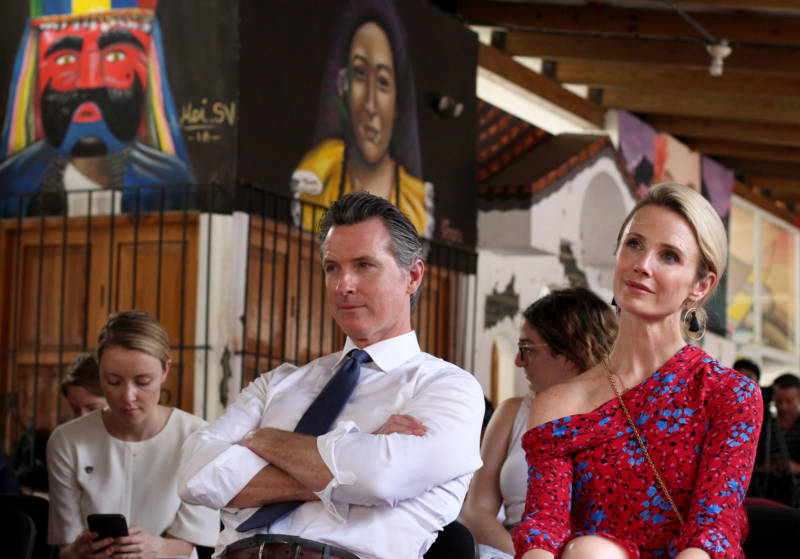But they never made it. Authorities in Mexico stopped them, held them for three days and then bused them back to El Salvador. They did not share details about why they were stopped.
Menjivar successfully made it to an aunt's home in Houston several years ago but returned home voluntarily when his mother needed help. He had crossed the border illegally with help from a human smuggler and hopes to return because of the violence at home.
Violence by gangs has made El Salvador one of the most dangerous countries in the world, with 50 homicides for every 100,000 people. By contrast, the U.S. rate is about five per 100,000.
"I never leave my house because it's so insecure outside," said Menjivar, who is 18.
The three met with Newsom privately after sharing their stories with reporters. The International Organization for Migration chose them to meet with the governor.
Fuentes, 26, said his family used to own a farm with cattle and goats but was forced to sell many of them off as gangs demanded much of their profits.
"Here, the struggle is day by day, you have to survive one day for the other," he said of El Salvador.
Monroy said some people in the caravans may be affiliated with gangs but most are trying to escape violence.
The Newsoms and Carillo also met privately with President Cerén and the U.S. Ambassador Manes. Afterward the governor said little about the meetings, but did report that both expressed concern about having just met with Trump administration officials to discuss U.S. humanitarian aid — more than $450 million — only to have President Trump move to cut off the aid.
“The U.S. aid we are providing is making a real difference in people’s lives, not just from a security perspective but from an economic perspective,” he said he learned. “The absurdity of the U.S. would pull back from something that is working and would create a problem they want to fix.”
He said his wife asked President Cerén about the situation for women in El Salvador, and particularly women in prison. The issue is important to Salvadoran American leaders in Los Angeles, who say many women in El Salvador face incredible violence and abuse, which often propels their migration.
“Their American dream, as part of America, is to stay in their home and in their community,” said Angelica Salas, executive director of the Coalition for Human Rights Los Angeles. “Nobody comes because they want to.”
Newsom didn’t disclose the president’s response.
This story includes reporting by Kathleen Ronayne of The Associated Press.
CALmatters.org is a nonprofit, nonpartisan media venture explaining California policies and politics.

